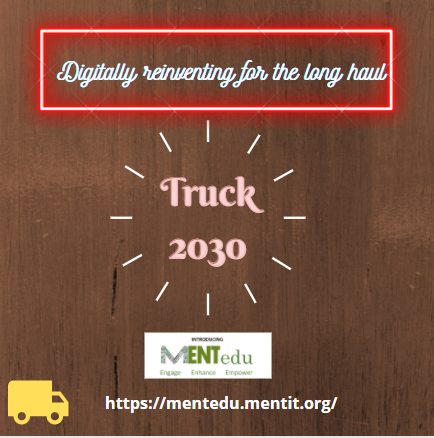FUTURE MONEY: How Covid-19 changed our financial habits
By Author: MENTit (MENTit Developer)Affiliation: MENTit
The company which did the report- This material has been prepared by Standard Chartered Bank (SCB), a firm authorised by the United Kingdom’s Prudential Regulation Authority and regulated by the United Kingdom’s Financial Conduct Authority and Prudential Regulation Authority.
About the company- Standard Chartered Bank (SCB), a firm authorised by the United Kingdom’s Prudential Regulation Authority and regulated by the United Kingdom’s Financial Conduct Authority and Prudential Regulation Authority.
Area of research - Financial habits (How COVID-19 changed our financial habits)
Name of the organization which did the survey- A 10-minute online survey was conducted in three waves by Portland Communications. Results are weighted on the latest national census (published by the national statistical authority) in each market by age, gender and macro-region and should be considered representative of the online population. Portland Communications is a member of the British Polling Council.
Participants of the survey- Survey of 36,000 consumers in 12 markets investigated the impact of COVID-19 on people’s finances and aspirations, as well as the pace at which they are adopting digital technology.
Duration of the research survey- Conducted between July and October 2020.
The main points of discussion in the survey:
- How will financial services evolve?
- Fast-growing markets
- Post-pandemic scenarios
- How COVID-19 is changing the way consumers earn, spend and manage their money (save and transact).
- The local view - The pandemic has affected economies around the world, but people are reacting differently when it comes to their financial habits.
Findings of the survey:
- A new generation searches for new solutions- The financial needs of young consumers are changing, making them more willing to experiment with innovative banking technology.
- The shift from physical to digital banking is picking up pace- We are also seeing a faster transition to cashless societies: two-thirds of consumers around the world (64 per cent) think their market will stop using cash altogether, predicting on average that this will happen by 2030.
- Our approach to spending and managing money is becoming more mindful- with almost half (48 per cent) of people saying they now prefer to buy online – many say they are more interested than ever in buying goods produced locally and sustainably and spending their money with small businesses.
- Fast-growing markets are more confident in their outlook, with a greater appetite for experimentation with new ways of earning and more mindful ways of spending.
- More experimental- Kenyan (85 per cent), Indonesian (80 per cent) and Pakistani (66 per cent) respondents are the most likely to consider starting a new business to diversify their incomes.
- More mindful - Respondents in Kenya (93 per cent), India (90 per cent) and the UAE (89 per cent) are the most careful with their spending and Indonesians, Kenyans and Indians are most likely to be buying more products from small, local and sustainable businesses as a result of COVID-19.
- More confident- Respondents in Kenya (89 per cent), India (89 per cent) and UAE (87 per cent) are the most confident in their ability to thrive in a more digital post-COVID-19 world.
- Consumer trends driving innovations that will transform the way people earn, spend and manage their money -
- A new generation searches for new solutions- Younger consumers are open and eager to diversify their income streams. These customers are seeking out more diverse income streams and new ways to invest. They are also more willing to experiment with new digital financial services and tools. 80% of the younger people are confident that their digital skills will allow them to thrive in the post-COVID-19 world.
- Consumers are now much more willing to experiment with innovative banking technology- 60% of people who tried new digital tools during pandemic had a positive experience.
- The shift from physical to digital banking is picking up pace- A branchless banking world is coming earlier than expected. A majority of respondents in each of the markets we surveyed (except for Pakistan) believe that their market will go cashless in the future – amounting to 64 per cent globally. On average, people predict that this will happen by 2030.
- Our approach to spending and managing money is becoming more mindful- The digital high street: online shopping is growing rapidly, while hyper-local, ethical spending is on the rise. Consumers are becoming more cautious and resolved to manage their money better
9.Post-pandemic scenarios
- Gile investing – Investment and savings apps will transform to become on-demand services.
- Automated switching services for banking – Intermediaries will become popular with consumers, enabling them to transfer their banking services automatically between suppliers towards the best deal, hassle-free.
- Digital nomad banking – New digital entrepreneurs will emerge, starting their own businesses and side hustles.
- The rise of super apps – Users will increasingly be able to consolidate all their mobile activities into a functional one-stop-shop that fulfils not only their banking needs but many other payments and lifestyle services
- Investment in experience – Branches will shift from being a place for everyday financial transactions to places of rich experiences, such as learning in an interactive classroom or relaxing in a coffee shop.
- Biometric security becomes more important – The rise of secure banking via fingerprints and face/iris scans will reach a tipping point where biometric security overtakes traditional security mechanisms such as PINs to become the go-to method for people to protect their money.
- Impact investing will flourish – Long-term savings accounts (such as retirement accounts) and other investing practices will become more flexible and go beyond the environmental, social and governance (ESG) retail investments currently on offer.
- The emergence of more local and sustainable online businesses – businesses will respond to consumer appetite for more ethical online products and services by adapting their business practices and products to meet new expectations.
- Ethical data collection – As consumers increase their attention to their spending, banks will facilitate this by collecting more data and sharing it with other apps as necessary.
10. Our approach to spending and managing money is becoming more mindful:
- The digital high street: online shopping is growing rapidly, while hyper-local, ethical spending is on the rise. Almost half of our respondents (48 per cent) say they are likely to prefer to buy online in the future. While there has been an unprecedented increase in the proportion of online shopping, over 50 per cent of people globally say that COVID-19 has made them more inclined to shop with smaller, local retailers, and to buy more sustainably sourced products.
- Consumers are becoming more cautious and resolved to manage their money better.
11.How COVID-19 is changing the way consumers earn, spend and manage their money (save and transact) :
- EARN- Globally, people are responding to the crisis by working harder, more flexibly and thinking of new ways to increase their earnings.
- SPEND- Consumers, particularly young people, have started tracking their spending and are also more inclined to buy from local, small and sustainable businesses. Despite this increased caution, online shopping has boomed as people transition away from in-person payments.
- SAVE AND TRANSACT- Over 50 per cent of our respondents say they are now banking more on their mobile phone, laptop or tablet, and more people are looking to manage their money in new ways with mobile apps. Our research has uncovered that younger generations, in particular, are facing their financial futures head-on.
12.THE LOCAL VIEW:
HONG KONG: Careful spenders
- Hong Kong has seen the largest decreases in spending on groceries and experiences during the pandemic, and over 20 per cent of our Hong Kong respondents expect to spend less on groceries and experiences in the future.
- 77% says that COVID-19 has made them more careful with their spending and 66% say that COVID-19 has made them more likely to track their spending.
INDIA: Facing a post-COVID-19 future with confidence
- 89% in India are confident that they have the digital skills needed to thrive in the COVID-19 world, 57% are more confident about achieving their financial goals since COVID-19 and 87% think their country will go cashless.
INDONESIA: Rapidly digitising and diversifying income streams
- A large majority of Indonesians have been driven to work harder and diversify their sources of income as a result of the pandemic: they are the second most likely across all markets to consider setting up a additional income stream, re-skill or start their own business and third most likely to want to make more use of technology in the way they work.
KENYA: responding to COVID’s financial challenges with care
- Respondents in Kenya are more likely than people in any other market to consider diversifying their sources of income, such as starting a second income stream, reskilling or starting their own business. In our global survey, Kenyan consumers are the most likely to be careful with their spending (93 per cent), and the most motivated to improve their money-management skills.
SINGAPORE: Staying ahead of the curve
- Singapore was one of the most tech-savvy markets we surveyed, with two-thirds of Singaporeans (67 per cent) already using a mobile banking app before COVID-19 hit, but this trend has been accelerated by the pandemic. A majority think Singapore will go cashless and their average prediction is by 2031.
UAE: Transforming the world of work
- People in the UAE have a significant appetite to integrate technology more in the way they work. A majority are considering diversifying their income sources post-COVID-19, and many are interested in doing voluntary work for charities.
Many of the trends highlighted in this report were bound to materialise at some point, but COVID-19 has drastically accelerated them, spurring on the integration of digital into our lives. Despite the all-encompassing challenges that have unfolded in its wake, the pandemic has also presented an opportunity to build a digital financial world that is inclusive, allowing better and faster access to banking.
Questions
1) What is the title of the survey report?
- Closing the gender gap
- Fighting against discrimination
- Future money
- Diversity and inclusion
2) The survey was done by?
- Standard chartered
- Portland Communications
- Societe generale
- Synchrony
3) The report was done by?
- Standard chartered
- Global markets
- Societe generale
- Synchrony
4) What was the number of participants?
- 60,000
- 45,000
- 30,000
- 36,000
5) When was the survey conducted?
- 2019
- 2020
- 2018
- 2021
6) How will financial services not evolve?
- A new generation searches for new solutions
- The shift from physical to digital banking is picking up pace
- Our approach to spending and managing money is becoming more mindful
- Not spending their money with small businesses.
7) Which of the following is not a trend?
- A new generation searches for new solutions
- The shift from physical to digital banking is picking up pace
- Our approach to spending and managing money is becoming more mindful
- Online shopping is growing rapidly
8) Globally, people are responding to the crisis by- (Which of the following is not true?)
- working harder
- more flexibly
- Being the way they are
- Thinking of new ways to increase their earnings.
9) How many % of people have inclined towards buying products from small businesses?
- 60%
- 45%
- 50%
- 65%
10) What’s the % change of people’s preference to buy things online before the pandemic and in the future?
- 25% -> 45%
- 26% -> 48%
- 30% -> 50%
- 50% -> 75%
11) Over ____ per cent of our respondents say they are now banking more on their mobile phone.
- 50%
- 75%
- 25%
- 45%
12) Which market has the highest levels of interest in starting a new business?
- India
- Pakistan
- Indonesia
- Malaysia
13) _____ per cent of people globally say COVID-19 has made them more careful with spending.
- 75%
- 60%
- 50%
- 45%
14) What % of Hong Kong people say that COVID-19 has made them more likely to track their spending?
- 45%
- 66%
- 55%
- 76%
15) What % of people in India are confident that they have the digital skills needed to thrive in the COVID-19 world?
- 50%
- 75%
- 25%
- 89%
16) Which market is the rapidly digitising and diversifying income streams?
- India
- Indonesia
- Hong Kong
- Kenya
17) Which market is responding to COVID’s financial challenges with care?
- India
- Indonesia
- Hong Kong
- Kenya
18) Which market is staying ahead of the curve?
- India
- Pakistan
- Singapore
- Indonesia
19) Which market is transforming the world of work?
- UAE
- India
- Pakistan
- Kenya
20) Which market is full of careful spenders?
- India
- Pakistan
- Hong Kong
- Singapore
References:
Disclaimer:
The views/opinions expressed in this blog by me as a MENTit user are my personal. MENTit or its promoters or other users may not share the same views or opinions as mine. If any copyright/trademark/patent/plagiarism/controversy issue emerges because of this article written by me, I, as an author, shall be the sole responsible for the consequences.








